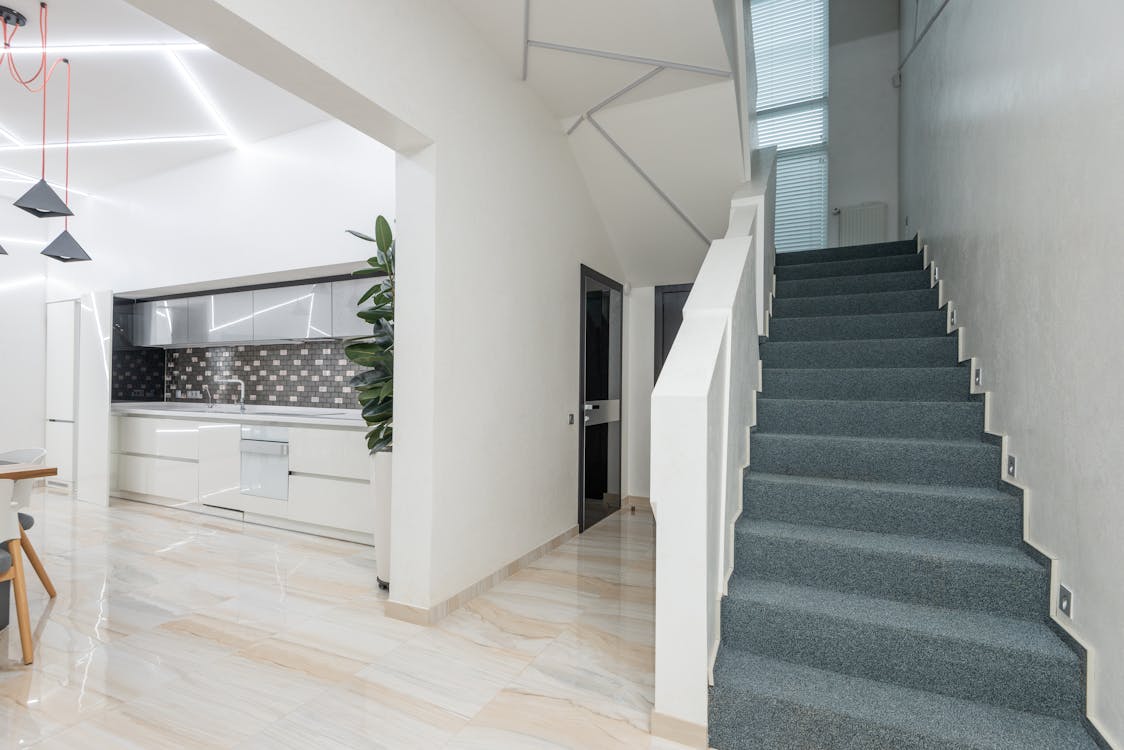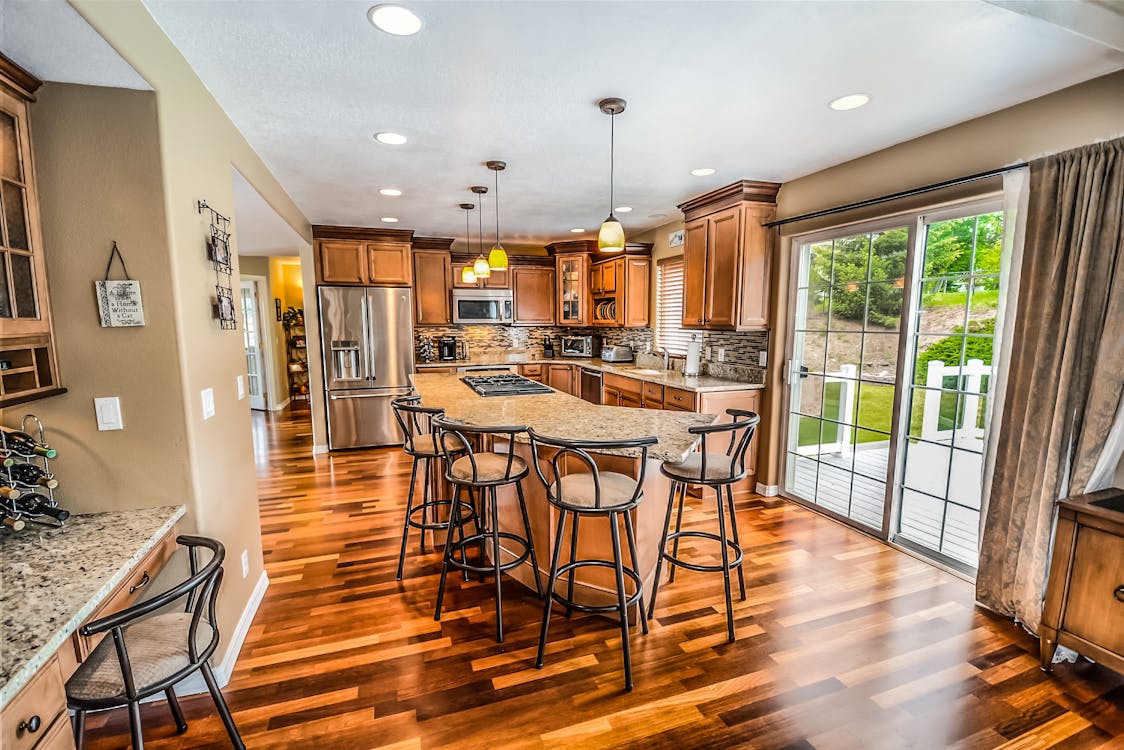Studying in university is a dream for many students who want to expand their horizons and gain valuable skills. There are a variety of options when it comes to student accommodation, and also a number of considerations and checkpoints you should run through before making your choice – which is also bound to be partially based on personal preference. The decision of where to live while attending university is an important one. It can have a significant impact on your academic performance, social life, and overall university experience.
In the blog post below, we outline some of the main pros and cons of each option and we paint a picture of what life might look like in each choice whether On Campus or Off Campus.
On Campus and Off Campus Meaning

On Campus Accommodation refers to housing alternatives offered by educational institutions. They offer housing for their students to live in while attending classes, just like universities and colleges do. These dwelling choices are able to consist of residence halls or dormitories that are usually located close to the university. Here are some common types of On Campus accommodation.
- Residence halls
Large buildings with multiple rooms, usually shared by two or more students. They often have communal facilities such as bathrooms, kitchens, laundry rooms, and common areas. Residence halls may also offer services such as meals, cleaning, and security.
- Dormitories
Similar to residence halls, but usually smaller and more basic. They may have fewer facilities and services, but also lower costs. Dormitories are often reserved for first-year students or students with special needs. Here are different types of dormitories.
- Studio
Studio is for one person, and the price is relatively high. It has good privacy and is suitable for students who don’t want to share their living space with others.
- En-Suite
En-Suite is the most common room type in British dormitories. The classic configuration is: table and chairs, wardrobe, a single bed, and the room has an independent bathroom, and the kitchen area is shared.
- Standard/ Shared
Standard/Shared is the basic standard room – shared means sharing the bathroom, bathroom and kitchen with others. General standard configuration: simple equipment such as a single bed, table, chairs and wardrobe.
The price of each room type is different, but generally speaking, Studio > En-suite > Standard, the price is calculated on a weekly basis. As for the payment method, different dormitories have two types: installment payment (most installment payments require a guarantor) and lump sum payment. Installment payment means paying the dormitory fee for the first semester before moving in, and paying it in full before the start of each subsequent semester.

Off campus Accommodation refers to accommodation choices that an educational institution does not offer and is located outside of the campus region. Students can live in these options while attending classes: shared rooms, apartments, houses, or other rental properties. Here are some common types of Off Campus accommodation.
- Apartments
Apartments are self-contained student accommodation that have one or more rooms, including a kitchen, a bathroom, and a living area. They can be rented individually or shared with other tenants. They can also vary in size, quality, and price depending on the location and the amenities. For example, an apartment in New York City may cost more than an apartment in Montreal.
- Flats
Flats are similar to apartments, but usually smaller and cheaper. They may have fewer rooms and facilities, but also more flexibility and availability. Flats are common in European countries such as the UK, France, and Germany.
- Houses
Houses could be detached or semi-detached buildings with multiple rooms, including a kitchen, a bathroom, a living room, and one or more bedrooms. They can be rented individually or shared with other tenants. Houses can offer more space, privacy, and comfort than apartments or flats, but also more responsibility and cost. This is a popular option for students in countries such as Australia, New Zealand, and Canada.
- Shared rooms
Shared rooms are rented by two or more students who share the same space and facilities. They can be found in apartments, flats, houses, or other types of accommodation. They can be cheaper and more social than individual rooms, but also less private and quiet.
The main expenses for renting Off Campus are:
Deposit: generally 1 to 3 months’ rent, it will be returned after check-out.
Rent: The rent will vary depending on the location and decoration of the house. The closer to the city center, the more convenient, and the better the decoration, the higher the price.
Bills: Including water, electricity, internet and gas bills, etc.
Agency fees: At present, British law has made it clear that agencies are not allowed to charge agency fees during the rental process. If you want to rent a house with an agency, please be sure to find a large and reliable agency.
Pros and Cons of Living On Campus

Pros
- Convenience:You will be close to the university facilities (e.g. classrooms, libraries, labs), saving you time and money on transportation and making it easier to attend classes, study, and participate in campus activities.
- Security:University residential properties are usually monitored by security staff or cameras, and are likely to have access control systems or locks. This can provide a sense of safety and protection for you and your belongings.
- Facilities:there could be various facilities available, such as internet, cable TV, gym, pool, cafeteria, etc. These opportunities for recreation and relaxation can enhance your comfort and quality of life.
- Social life:Living with other students can help you foster a sense of community and belonging, especially during your first year at university. You might find more opportunities for social interaction, networking, friendship, and support, as well as to meet and learn from people with different backgrounds, cultures, and interests.
- Academic support:You could have more access to student support services, such as tutoring, mentoring, counseling, etc. You could potentially benefit from peer learning and collaboration in the accommodation.
- Reception: Don’t worry about the express being returned.
Cons
- Lack of privacy:Sharing rooms or facilities often means there is limited space and privacy. This can be a challenge for students who prefer personal comfort, freedom, and autonomy.
- Rules and regulations:There could be specific rules and regulations in campus accommodation, such as curfews, visitor policies, alcohol policies, etc. Some places may even impose penalties for violations. For some, this can feel restricting or controlling.
- Cost:While costs can vary greatly depending on the location, type, and quality of the accommodation, it is sometimes inclusive of the cost of utilities and meals. This could make it a more expensive choice than independent living. However, it might be possible for you to apply for financial aid or scholarships that assist with accommodation.
- Availability:There is often limited availability or capacity for students who want to live on campus. The demand may exceed the supply, especially during peak seasons or periods. You may have to apply early or compete with others for a place.
Pros and Cons of Living Off Campus

Pros
- Independence:You’ll have more freedom and privacy to live on your own terms since you can choose your own roommates, furniture, food, and lifestyle. You also avoid the rules and regulations that may apply to on-campus accommodation.
- Diversity:Living independently exposes you to a wider range of people, cultures, and experiences. There could also be more accessibility to explore the city and its attractions.
- Cost: Off Campus student accommodation can be cheaper than on-campus living, depending on the location and type of accommodation. It’s easier to save money as you can share the rent and utilities with other tenants, cook your own meals, and find discounts and deals.
Cons
- Transportation:If you live far from your university campus or public transportation systems, it gets harder to commute to your classes. You may have to spend more time and money on transportation, or deal with traffic, weather, or safety issues.
- Isolation:You could end up feeling lonely or disconnected from your peers and the campus community, especially if you’re a first-year student who is new to the country. There could be fewer opportunities for social interaction, networking, friendship, and support. There’s also the possibility of encountering cultural or language barriers with neighbors or landlords.
- Responsibility:Unlike on-campus living, you usually need to take care of everything on your own, such as finding a suitable place, signing a contract, paying bills, cleaning, maintaining, etc. You may have to deal with problems such as repairs, damages, disputes, or scams.
Considerations of Choosing On Campus or Off Campus
There are factors you should consider when making this decision between On Campus vs Off Campus accommodation for your higher educational journey.
- Location:Take into account the proximity of the accommodation to your campus, local amenities, and transportation options. Determine if it is convenient and easily accessible for your needs.
- Cost: Check if the cost of accommodation falls within your budget. Remember to include expenses like utilities, transportation, and meal plans.
- Roommates: Decide whether you prefer living with roommates or having a place all to yourself. If you opt for roommates consider their habits, personalities, and lifestyles to ensure compatibility.
- Facilities: Consider the amenities provided by the accommodation such as facilities, fitness centers, or study rooms. Assess whether these facilities are important to you and meet your requirements.
- Safety and Medical Support: Pay attention to safety measures like doors, security cameras, or, on-site staff at the accommodation.
- Policies:Take into consideration policies and regulations of the accommodation, such as guest policies, noise restrictions, and pet policies. Determine if these policies align with your lifestyle and preferences.
- Privacy: Privacy is something that cannot be found easily. Usually, students struggle with finding an accommodation that ensures their privacy and independence.
- Commute: Students who have shifted for educational purposes should choose accommodations near their university and college. You should consider the time of travel or commute when finalizing your accommodations.
- Food: Consider the food of the accommodation and not even food, but eateries, cafes, and good restaurants should surround the accommodation.
- Lease Terms: Consider the lease terms of the accommodation, including the length of the lease, move-in and move-out dates, and any penalties for breaking the lease. When you’re looking for a place to live, it’s important to be aware of rental scams. Some of these rental scams include non-existing rentals, hijacked advertisements, and missing amenities.
Conclusion
University life can be a whirlwind of emotions, new experiences, and academic challenges. As students flood to Newcastle and other student cities for first year of university living, a crucial consideration that demands early attention often dominates the first semester: student accommodation. Choosing to live On Campus or Off Campus isn’t an easy decision, which is why we have put together the pros and cons of each accommodation type. uhomes.com will provide affordable, reliable and comfortable student accommodation as the backup force of students’ educational process.
FAQ
It depends on personal preferences. On Campus offers convenience and security, while Off Campus provides more independence and affordability.
Off Campus student accommodation is often more affordable, but this varies by location and type of housing.
Off Campus student accommodation typically offers more privacy compared to shared On Campus student accommodation, with fewer restrictions on personal space.
Yes, most Off Campus student accommodation allow guests, but it’s important to check specific rental agreements for any restrictions.
Apply for On Campus student accommodation through your university’s housing office or online portal, usually as part of the admissions process or via a separate application form.








